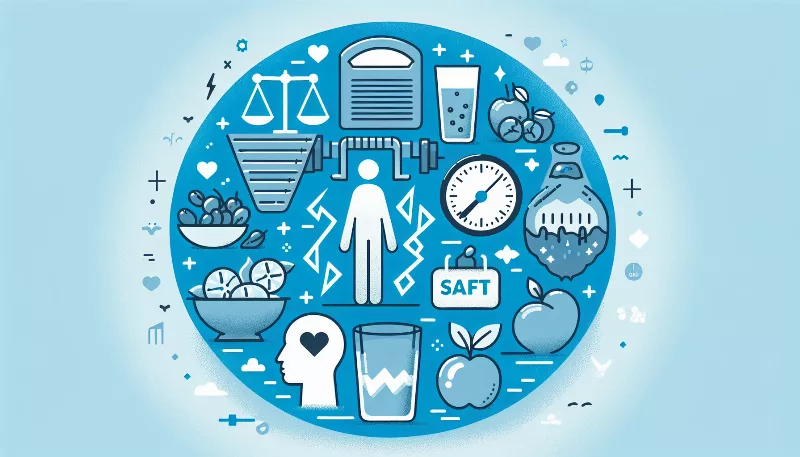What are the potential risks and side effects associated with detox fasting?
Discover the hidden dangers of detox fasting before you start. Learn about the risks & side effects to make an informed decision for your health.

Introduction to Detox Fasting
Detox fasting has become a buzzword in the wellness community, promising a reset button for your body. It's often portrayed as a miraculous cleanse that flushes toxins from your system, boosts your energy levels, and kickstarts weight loss. But before you jump on the fasting bandwagon, it's crucial to understand that this practice is not without its risks and side effects. Let's dive into the less-talked-about aspects of detox fasting with an enthusiastic yet cautious perspective!
The Balancing Act: Potential Risks of Detox Fasting
Embarking on a detox fast can be like walking a tightrope – it requires balance and awareness. One of the primary concerns is the risk of nutrient deficiencies. When you fast, especially for extended periods, your body may miss out on essential vitamins and minerals necessary for optimal function. This can lead to a range of health issues, from anemia to weakened immune function.
Another risk factor is the strain on your body's systems. Fasting can cause significant stress on the liver and kidneys, which are already hard at work detoxifying your body. Overloading these organs with an intense detox regimen can sometimes do more harm than good. Additionally, individuals with pre-existing health conditions, such as diabetes or heart disease, should approach fasting with extreme caution, as it can exacerbate these conditions.
Side Effects: The Body's Response to Fasting
As you embark on a detox fast, your body might react in ways that are less than pleasant. Common side effects include headaches, fatigue, and irritability, often stemming from withdrawal from caffeine, sugar, and other substances. You might also experience dizziness or lightheadedness due to drops in blood sugar levels or dehydration, another frequent companion of fasting.
Digestive disturbances are also par for the course. Without regular food intake, you may encounter constipation or, conversely, diarrhea as your digestive system reacts to the change. And let's not forget the potential for bad breath, a direct result of the body breaking down fat and releasing ketones.
Long-Term Considerations: When Fasting Does More Harm Than Good
While short-term side effects are certainly a concern, long-term fasting can introduce even more serious complications. Extended periods of calorie restriction can lead to muscle loss as the body seeks alternative energy sources. This can weaken your overall strength and endurance, making everyday activities more challenging.
Moreover, there's the psychological impact. Fasting can trigger disordered eating patterns in susceptible individuals, leading to an unhealthy relationship with food. The cycle of restriction and bingeing can take a toll on mental health and overall well-being.
Conclusion: A Thoughtful Approach to Detox Fasting
In conclusion, while detox fasting can offer benefits, it's important to approach it with a full understanding of the potential risks and side effects. Always consult with a healthcare professional before starting any fasting regimen, particularly if you have existing health issues. Remember, the goal of a detox should be to support your body, not to push it to its limits. With careful consideration and professional guidance, you can make informed decisions that prioritize your health and safety.










